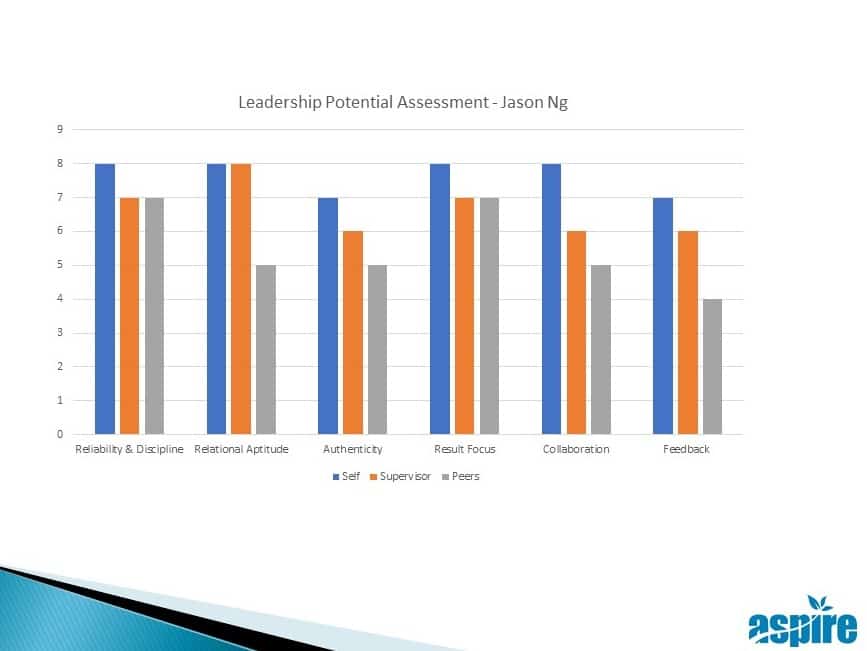I have found the following 6 components to be a strong indicator of potential in first-time leaders/managers – and I’ll explain why:

- Reliability and Discipline: this component assesses how a candidate honours commitments and promises. So too, behaviour such as punctuality, respect for deadlines and the time of others. This is one of the most basic ingredients of leadership potential
- Relational Aptitude: this is the most comprehensive part of the assessment because it informs both the interest and aptitude for leading others. In this component, you would look for behavioural clues that suggest care, empathy, the ability to relate to others and respect for people at all levels (including waiting staff at restaurants, cleaners, etc). I include in this component, the ability to keep confidences. A candidate who returns low scores in this category is unlikely to flourish in people management
- Authenticity: we place a lot of emphasis on a leader being described as ‘genuine’ or otherwise. Behaviour associated with this is observed in situations such as the consistency of a person’s words and action, forthrightness in the way they communicate and the willingness of a person to stand up for what is right. This component also addresses perceptions of whether the candidate is seen to indulge in political behaviour to the detriment of others
- Results and Accountability: this is the primary criteria that most organisations employ when considering a promotion. I would argue against the need for outstanding results as a sole criteria of difference. Results, while important, should be considered in tandem with accountability. Accountability, in this context, refers to behaviour such as truthfulness when things do not go to plan or when a commitment cannot be honoured. It also takes into account the quality of work delivered by a candidate
- Collaboration: when considering leadership potential, the willingness of a candidate to collaborate with others – within and across functions – is essential. The brilliant lone wolf would not fall into this category. Apart from the ability to work effectively with others, we also consider volunteerism and commitment to get involved with activities that may not necessarily interest the candidate but are done for the sake of the team
- Feedback and Personal Development: this, in my opinion, is one of the most striking pieces of evidence of leadership potential. I have observed, consistently, the pro-action and openness with which candidates of strong potential seek and receive feedback. The other observation to look out for is whether their feedback is sought after by their peers
“The leadership potential and acceptance of a candidate must be viewed through the eyes of the people that he/she will potentially lead”
There is an organisation I have worked with over the years that adopt an informal but transparent way in identifying potential leadership talent. Their rate of success in identifying and developing the right leaders has been pretty impressive. Once a month, in their leadership team meetings, HODs highlight people in their respective departments who have been performing well. This allows their counterparts to comment and offer feedback on their own interaction with these potential candidates. The traits that they tend to talk about are largely contained in this assessment
The Aspire Leadership Potential 360 Assessment improves the accuracy of identifying potential leadership talent within your organisation. It was designed by Pete Pereira and Helen Langhammer who have crafted and delivered leadership, team and organisational culture change solutions for the the past 18 years.
Pete Pereira has crafted and delivered leadership and organisational culture change solutions for the past 18 years with Aspire Consulting. He also creates facilitated online training solutions and coaches effective online design and facilitation techniques to in-house trainers. Follow him on LinkedIn.



















